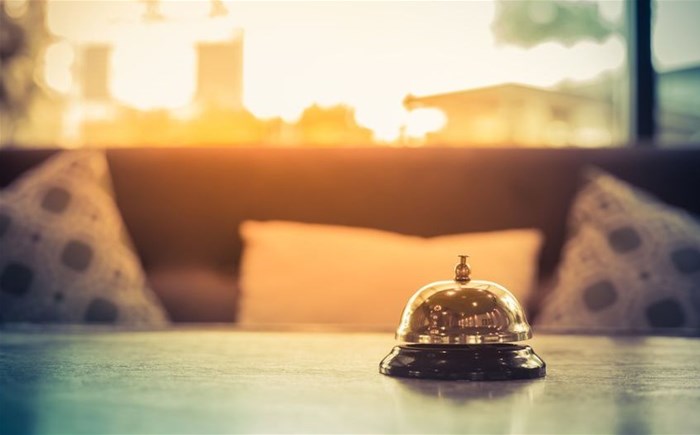
Related
Top stories






More news


Marketing & Media
Ads are coming to AI. Does that really have to be such a bad thing?














This is according to Max Urban, co-founder and managing director of short-term rental management company, Propr, who says that as digitisation has accelerated as a result of the Covid-19 lockdowns, consumers’ appetites for digital technologies and experiences have grown, but unlike other industries that swiftly adopted tech solutions, the hospitality sector has lagged."
"The industry needs to innovate and adapt now more than ever to meet consumer demands for accommodation that caters to the changing world of business and leisure, unique stays, instant communication on their preferred platforms, and smarter technologies to enhance their experience, amongst others," he adds.
To assist these businesses, Urban unpacks six trends that are shaking up the hospitality space:
The pandemic ushered in the era of offering flexible cancellations. When new travel restrictions can be imposed at a moment’s notice, guests may be unwilling to book accommodation with strict or moderate cancellation policies. Urban explains that accommodation providers have no choice but to embrace the last-minute nature with which guests book. "Gone are the days of looking at next year’s forward bookings."
Telecommuting has exploded since the start of the pandemic, as evidenced by the increase in daily active users on Microsoft Teams from 75 million users in 2020 to 145 million in 2021. "Businesses are becoming more accepting of remote workers, which has resulted in an upsurge in digital nomads travelling the globe and staying in places for weeks or months at a time. Properties that can offer dedicated workspaces and high-speed internet are much more likely to get booked," shares Urban.
With loadshedding being the new normal, properties need to offer solutions that minimise the impact on guests. This ranges from special lamps and bulbs to inverters that can power internet routers. Urban notes that doing so is a great way to be set apart from other listings at the moment.
4. Stand out, not standard:
"Today’s guests are looking for something special beyond the stock standard hotel room, prompting the hospitality industry to experiment with their offerings," explains Urban. "Marriott, for instance, has carved out separate portfolios of properties under the Homes & Villas by Marriott International banner which enables guests to book self-catering accommodation."
He adds that other hotel chains are expected to jump on this trend to make their properties unique and, in doing so, use their assets more efficiently. "An example of this could be renting out a hotel room during the day for use as a home office and hiring it out to a traveller at night."
Urban points out that soon the days of guests picking up the phone or walking down to reception to speak with staff at hospitality establishments will be no longer. "They are increasingly wanting their communication to be instant and digital, sparking the need to automate processes to assist guests and enhance their experience. Guests nowadays prefer to interact via WhatsApp and chatbots and the industry needs to catch up."
"This also needs to be done in such a way that communications don’t become robotic," he adds. "Guests still expect a personal touch for certain types of interactions, even if they are automated or executed electronically. One of the ways that we have managed to get the balance right is by automating highly structured communication which gives our team more opportunity to spend quality time with guests on things that computers don’t handle well yet such as planning a custom itinerary and talking about missed expectations.
We also use tech to alert us to opportunities where we can delight or help our guests. For example, we automatically flag certain keywords like 'anniversary', 'birthday' or 'locked out' and then notify our guest experience team."
He explains that the guest experience now starts before arrival, whereas before they would only be focused on once they were in-house. "Through automated communication, guests can also be upsold extras like tours, additional cleans or a stocked fridge to enhance their stay even before they set foot through the door, and these can be handled quickly and seamlessly."
Advances in technology will not only benefit the guests but property owners and professional hosts too. Urban explains that pricing algorithms are becoming increasingly sophisticated and can adjust pricing to capitalise on specific demand spikes.
For example, a premium could automatically be applied to one-night gaps in the calendar to make those bookings more worthwhile. IoT tech will also be able to synch an establishment’s calendar and switch the geyser on or off to save on electricity. Additionally, automatic inventory checks based on photographs will cut down the time it takes to check properties. Some of these technologies are already in existence and others are not too far off.
He concludes by saying: "The roaring 20s followed one of the last global pandemics, the so-called Spanish flu, and we are already seeing history starting to repeat itself with people wanting to get out and travel again. Over the past six months alone, we have seen booking levels return to what they were pre-Covid. In a year or two from now, it is anticipated that the hospitality industry will play a big part in helping economies recover, but players in the space need to be ready by responding to guests’ changing needs."